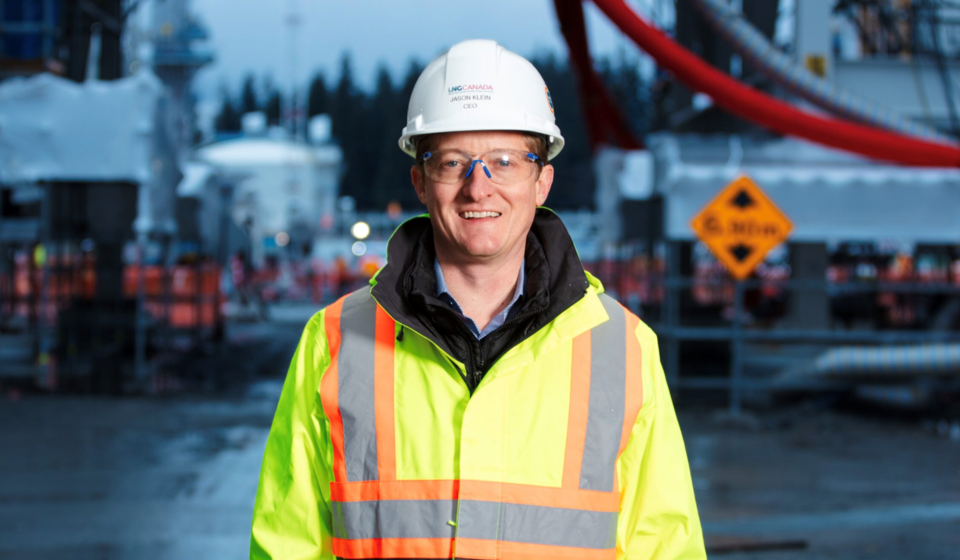After years of careful planning, robust community engagement and safe construction, the first phase of the is nearing completion in Kitimat, in the traditional territory of the Haisla Nation. With construction work almost complete, our commissioning and start-up activities are set to begin, marking another significant milestone for our project, the largest private investment in Canadian history.
We expect to start commercial operations by the middle of 2025. The first LNG carrier to sail from our facility and down the Douglas Channel will supply made-in-B.C. LNG to our joint venture participants and their customers. It will be a watershed moment, for LNG Canada and its employees, and for British Columbia and Canada: The launch of an entirely new Canadian industry offering competitive, secure and reliable sources of lower-carbon energy while delivering substantial benefits and resources to local communities and the B.C. economy. And, critically, helping foster economic reconciliation.
The impacts are already being felt. More than 30,000 Canadians have worked on our project to date, with almost 9,000 Canadians employed at our Kitimat site in January this year alone. The cumulative value of our project’s contracts and subcontracts to local, Indigenous and other businesses in B.C. has already exceeded $4.7 billion and includes more than $3.8 billion to Indigenous-owned and local area businesses.
It also includes a $500 million contract with , a joint venture between the Haisla Nation and North Vancouver-based Seaspan that will provide harbour and escort tugboat services to LNG Canada with its innovative fleet of battery-powered and low emissions vessels.
These are big numbers, and they demonstrate how we’re meeting commitments we made to governments when the LNG Canada project was approved. We also pledged, under , to protect the province’s air, land and water, and ensure British Columbians receive a fair return for their natural gas. We've designed a project with the lowest carbon intensity of any large-scale LNG export facility operating today: Emissions that are 35 per cent lower than the world’s best-performing facilities and 60 per cent lower than the global weighted average.
B.C. is blessed with an abundance of natural resources. How those resources are developed and shared—and who benefits—is important to every British Columbian. So it's worth noting that revenues the provincial government receives from upstream natural gas production, in the form of royalties, have become a significant part of its annual budget. In fact, they have increased exponentially over the past decade.
In the 2013-14 fiscal year, for example, natural gas royalties paid to the province totalled $445 million. In the tabled Feb. 22, natural gas royalties are forecast to reach $684 million in 2023-24, increasing annually to $1.43 billion in 2027. A main reason for this, the government says, is “increased natural gas volumes related to production requirements of LNG.”
In other words, more natural gas production—coupled with new LNG production in B.C.—means more money flowing to the province, available for public services and facilities such as health care, hospitals, education and schools. Direct benefits to government over the life our project alone will reach $23 billion, by .
When presenting her government’s latest budget, B.C. Finance Minister Katrine Conroy described the province’s overall financial challenges in what she called a period of slow global economic growth. For B.C. to thrive in the face of financial stress and uncertainty, responsible natural resource development should continue to be encouraged.
LNG Canada is proud to be delivering new employment opportunities to British Columbians and supporting B.C.’s economy. We’re also grateful for the opportunity to help pave the way for new, Indigenous-led LNG projects in B.C. such as , majority-owned by the Haisla Nation.
And with our five joint-venture participants, we continue to explore pathways to a potential LNG Canada Phase 2 expansion, which can unlock additional revenues to government and benefits for B.C. communities and businesses, and deliver more lower carbon LNG to countries trying to achieve their energy transition goals, all while maintaining alignment with CleanBC, the province’s plan to lower overall emissions.
Having set the benchmark for safe, reliable, and environmentally responsible LNG production, we’re about to make history. Working together, we can set our sights even higher.
Jason Klein is CEO of LNG Canada.
Editor's note: One of the links and two of the figures cited in this column have been updated since the piece was originally published.



